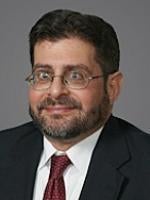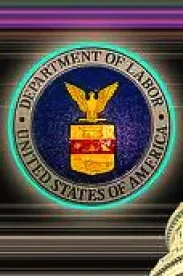On January 5, 2018, the U.S. Department of Labor (DOL) reissued 17 previously withdrawn opinion letters addressing a wide range of topics under the Fair Labor Standards Act (FLSA). The former acting administrator of the DOL’s Wage and Hour Division (WHD) signed 15 of the 17 opinion letters in January of 2009, during the final days of the Bush administration. The Team Leader of what was then the Fair Labor Standards Team of the Office of Enforcement Policy of WHD signed the remaining two opinion letters. Three other withdrawn 2009 opinion letters—FLSA 2009-22, FLSA 2009-23, and FLSA 2009-24—remain withdrawn.
The Obama administration withdrew these opinion letters “for further consideration by the Wage and Hour Division” on March 2, 2009, and stated that it would “provide a further response in the near future,” but it never did. The Obama administration was able to withdraw these letters because they were not “placed in the mail for delivery” even though they had been signed before the change in administrations.
Opinion letters address specific questions submitted to the DOL/WHD and constitute an important form of guidance for employers and employees with respect to applying the requirements of the FLSA and other laws to their workplaces. The Obama administration discontinued the longstanding practice of issuing opinion letters and did not issue any new ones. Instead, the Obama administration issued a handful of general guidance documents that it referred to as “Administrator’s Interpretations.” U.S. Secretary of Labor Alexander Acosta withdrew two of those Administrator’s Interpretations shortly after his appointment in 2017.
In June 2017, Secretary Acosta announced that he would reinstate the practice of issuing opinion letters. As we reported at that time, it was unclear when that practice actually would be reinstated, since the WHD did not yet have an administrator. Notably, the WHD still is without an administrator, as the Senate failed to approve a number of nominees before it adjourned in late December 2017, including the Wage and Hour administrator nominee Cheryl Stanton, a former Ogletree Deakins shareholder.
The reissued opinion letters all are signed by WHD Acting Administrator Bryan L. Jarrett. Each opinion letter states that it is a response from the requestor to reissue a previously withdrawn 2009 opinion letter. Without any explanation other than it “further analyzed” each withdrawn letter, the acting administrator simply reissued “the verbatim text” of each withdrawn opinion letter and asserted that it “is an official statement of WHD policy and an official ruling for purposes of the Portal-to-Portal Act, 29 U.S.C. § 259.”
The reissued opinion letters have been renumbered FLSA2018-1 through FLSA 2018-17. They address a variety of inquiries concerning various sections of the FLSA and its implementing regulations. Many of the reissued opinion letters concern the exempt status of specific job positions in specific industries under section 13(a)(1) of the FLSA, as defined in the Part 541 regulations. For example, some address questions about the exempt status of civilian helicopter pilots (FLSA2018-3); client service managers of an insurance company (FLSA2018-8); residential construction project supervisors (FLSA2018-10 and FLSA2018-17); and consultants, clinical coordinators, and business development mangers of a healthcare placement company (FLSA2018-12). Two of these opinion letters— (FLSA2018-7) and (FLSA2018-14)—address inquiries about the salary basis test for exempt status, as defined in 29 C.F.R. § 541.602.
Other topics involve:
-
whether certain bonuses or other payments should be included in calculating employees’ regular rates pursuant to section 7(e) of the FLSA (FLSA2018-5, FLSA2018-9, and FLSA2018-11);
-
whether a plumbing repair and service business qualifies as a retail or service establishment exempt from overtime under section 7(i) of the FLSA (FLSA2018-2); and
-
whether a non-profit fire company and for-profit company are joint employers of volunteers of the non-profit that has contracted with the for-profit company to supplement its volunteer staff (FLSA2018-16).
As referenced earlier, the Portal-to-Portal Act of 1947 amended the FLSA to provide an employer with an affirmative defense that protects it from liability when the employer takes a certain action in reliance upon any written regulation, ruling, or interpretation by the WHD. It is well established that an opinion letter serves as a written ruling for purposes of the Portal Act’s affirmative defense provision. The other requirements to qualify for this affirmative defense are that an employer must act “in conformity with” an opinion letter and in “good faith.”
In order for employers to be able to use opinion letters for their affirmative defenses and receive deference by the courts, it is important that the DOL/WHD fully outline the facts involved in its opinions and to explain and justify its rulings and interpretations, especially when it departs from a previous position or interpretation. It is equally important, if not more so, for employers to take appropriate steps to ensure that they are acting in conformity with an opinion letter. This is highlighted in a recent decision by the Sixth Circuit Court of Appeals, which ruled that an employer could not avail itself of the Portal Act’s affirmative defense. In assessing the duties performed by certain employees whom the employer had classified as exempt, the appellate court found that the employer did not act “in conformity with” the facts and circumstances as set forth in an opinion letter upon which the employer had ostensibly relied.





 />i
/>i

